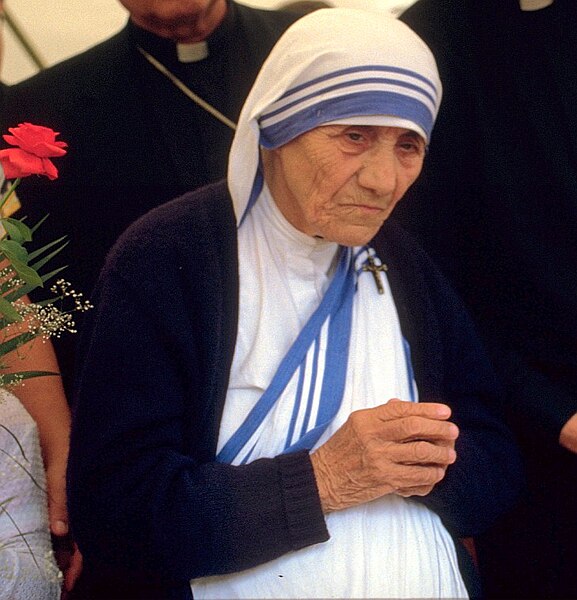Last week we lost one of the titans of American history writing, Yale’s Edmund Morgan. His publishing career spanned an incredible sixty-five years from his first book (1944) to his last (2009). His topics ranged widely across colonial and Revolutionary American history, but if you have read anything by Morgan, it is likely The Puritan Dilemma, his biography of John Winthrop, still often used in history survey courses as a model of historical writing. An atheist, like his famous Harvard mentor Perry Miller, Morgan nevertheless took the Puritans’ religious ideas seriously. Morgan saw history as a craft rather than a vehicle for ideology or polemics, and he was simply one of the best academic prose stylists America has ever produced. 
What book of Morgan’s might I recommend to start with? You won’t go wrong with any of them, but I particularly admire Morgan’s trilogy of Puritan histories, The Puritan Dilemma, Visible Saints: The History of a Puritan Idea,and The Puritan Family: Religion and Domestic Relations in Seventeenth-Century New England, a book I recommended in an earlier post on the “Best 5 Books on the Puritans.” Miller and Morgan were perfectly, if ironically, placed to lead a mid-20th century renaissance of Puritan studies – when two Ivy League atheist professors insisted that the Puritans were weighty thinkers worth studying, you somehow knew they had to be right.
Although it is more demanding than most of his other books, I still regard Morgan’s American Slavery, American Freedom: The Ordeal of Colonial Virginia as his masterwork. Here Morgan showed (in a provocative thesis challenged by a number of subsequent historians) how the labor system of early Virginia was surprisingly non-racial, until the debacle of Bacon’s Rebellion in the 1670s convinced Virginia planters they could no longer safely depend on white indentured servants as their primary workers. Economic and social practicalities preceded the rise of virulent racism in Virginia’s turn to slavery. It was the epitome of explaining change over time, a task which historians consider the core of their work.
Morgan was especially good at counter-intuitive history, showing a skeptical generation of intellectuals that the Puritans were formidable thinkers (and had loving families, to boot). American Slavery, American Freedom showed the civil rights era that racial inequality was entwined with the soaring ideals of the American founding – yet it did not have to be that way, he implied, if racism did not precede slavery.
Morgan once wrote an essay, “Cultivating Surprise,” for the magazine of the Huntington Library on his historical method. They re-posted part of it last week. It is a glimpse into the methods of a historical genius, offering wise words for any writer.
If you have studied any part of history enough to be curious about it, enough to want to do some research, you already are aware of the generally accepted views, the orthodox views, the controversies among the experts in the field, what is taken for granted and what is in dispute. You want to learn a little more about some question, and you go to the source materials that are presumably the foundation of the orthodox views. You come across something that you had not known about, something that surprises you a little. Cultivate that surprise. Do not say to yourself, “Oh, I didn’t know that,” and go on with your reading. Stop right there. Ask yourself, Why did I not know that? Is it contrary to what I had been led to expect? Is it because I did not know enough? Or is it because the people who crafted the orthodox interpretations did not know enough? Or perhaps their angle of vision was limited by what came before….
I could cite…examples of cultivating surprise from most of the books I have written. But I want to offer a couple of other pieces of advice. First, and probably most idiosyncratic, try to forget philosophies of history and theories of historical causation: Marxist, Straussian, postmodern, or whatever. You probably have one, conscious or unconscious, but try not to let it get in your way. Cultivate that surprise when the documents don’t seem to support your views. Next, try to keep your research and your writing together. Don’t wait until you think you have entirely completed your research before beginning to write. As soon as you begin to see connections between things that you had not noticed before, start writing what you think you have found out about them, even if these writings seem fragmentary. Don’t get too systematic. Don’t make elaborate outlines with headings and subheadings. Don’t spend a lot of time arranging your notes. Stop stalling and start writing.
@ThomasSKidd on Twitter
Thomas Kidd is a contributing scholar to The Kuyperian Commentary. His newest book is Patrick Henry: First Among Patriots, published in 2011 with Basic Books.
[This article first appeared at The Anxious Bench.]<>

 By Thomas Kidd
By Thomas Kidd



 The commonplace depiction of Jesus as white led to indignant reactions, with some African Americans and other Christians claiming a “black Jesus” or some other Christ of their own ethnicity.
The commonplace depiction of Jesus as white led to indignant reactions, with some African Americans and other Christians claiming a “black Jesus” or some other Christ of their own ethnicity. Sovereign Grace Ministries (SGM) President C.J. Mahaney announced yesterday he will leave his position on April 12 to focus on pastoring his new church in Louisville, Ky. The announcement follows months of
Sovereign Grace Ministries (SGM) President C.J. Mahaney announced yesterday he will leave his position on April 12 to focus on pastoring his new church in Louisville, Ky. The announcement follows months of 

 and AIDS patients, who testified to the dignity of all human life, including the outcast and unborn.
and AIDS patients, who testified to the dignity of all human life, including the outcast and unborn.












